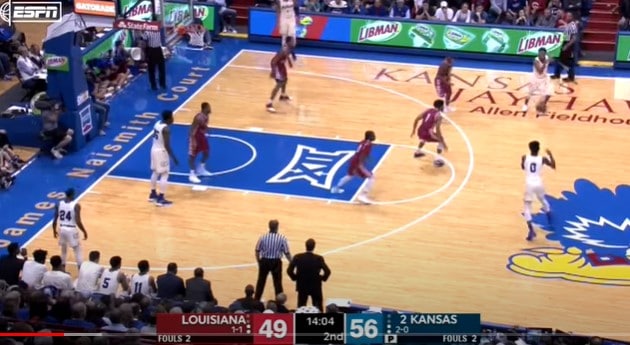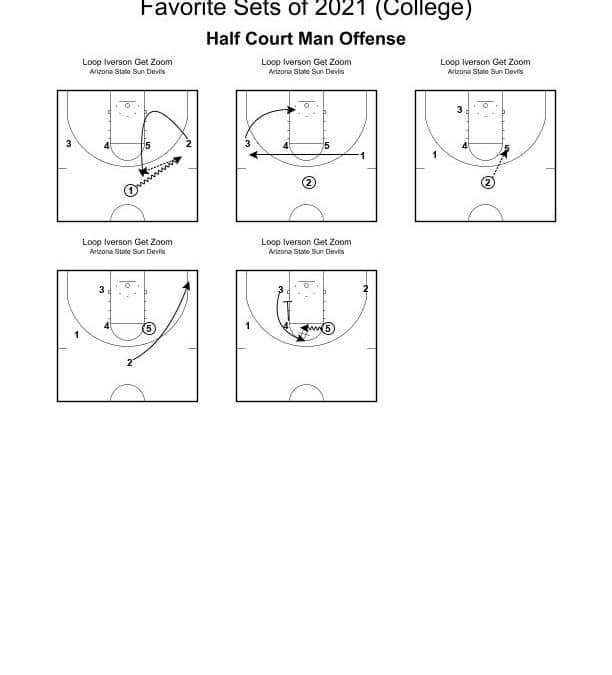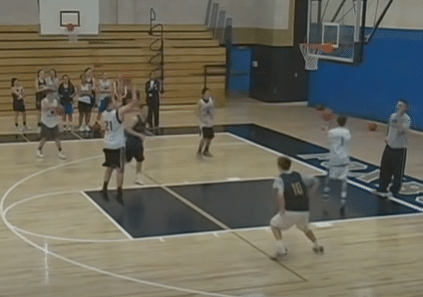First Year Basics: High School Coaching by Junior Skepple
One of the most difficult years for a basketball coach at any level can be year number one. The coaches as well as the players are getting familiar with each other and lots of time can be wasted if both parties are not on the same page.
Here are some tips you can follow to get the most of our your new team on and off the court.
High School Coaching – Rules Knowledge:
At the high school coaching level, it is amazing how many players simply do not have a complete knowledge of the rules of basketball. Lack of knowledge of the game can lead to fouls, bad turnovers, and in the worst case, losses.
As your teams new coach you need a baseline for what your players know and do not know. Most kids at the high school level watch the NBA more than any other level of basketball, so most players play within the NBA guidelines. As their coach it your responsibility to make sure they are aware of the high school basketball rules in your state.
I will not allow my players to touch the floor until they pass a test covering basic rules and also some of the more obscure rules of the game of basketball.
Some frequent mistakes I notice while watching, coaching, and refereeing high school games are as follows:
- Three seconds in the key (offense and defense).
- Hand checking (two hands) dribblers OR ‘guiding’ a dribbler with a forearm or hand.
- How many timeouts a team is allotted in a game and the penalty for going over the timeout limit.
- How many fouls a player is allotted during a game.
- Overtime rules.
- What constitutes a traveling call/pivot foot rules.
- 5 seconds closely guarded and that you can technically dribble have the ball in your possession for 12 seconds without penalty.
- How to set proper on-ball/off-ball screens
- Rebounding is about effort and positioning, not how high you can jump.
- “That’s not my man” defensive basketball – Teaching your players this phrase is unacceptable, while helping them realize any field goal made by the opponent hurts the team as a whole. Essentially, every opponent is every team member’s responsibility to keep from scoring.
High School Coaching – Talent Appraisal
Every team needs talent to win and finding out what talent you have at your disposal is key to your success once regular season games begin.
I have always liked having players pick their own teams and have them play pick up basketball for two practice sessions so I could get an idea of who my leaders are, what everyone’s skill set is, and who my preliminary starting five will be.
Pickup basketball is basketball in its purest form and I want to see what my players can do without coaching and when they have free reign to do what they are best at. After a game or two I will step in and form two even teams and see how my players deal with comparable competition, and who takes the lead as the “coach” of his unit.
I believe that once players begin playing for each other and not for their coach or their parents then we are on the way to becoming an unbreakable unit.
High School Coaching – Individual Players Meetings
When I speak to other coaches about their first year I am surprised at how many times they say they have not spoken to their players 1 on 1. I like this approach because it begins to form the bond that every coach should have with their player from their most talented player to the last player off the bench.
Here are some questions I like to ask:
- Why do want to be on the basketball team?
- Do you want to play basketball at the college level?
- Who is your favorite NBA player? (Younger athletes like to emulate players they like. This gives me an insight on how to reach this player and mold him in to being the most successful player he/she can be).
- What was your role on the team last year? – OR – Up until this point in your career what has your role been on the teams you’ve played on?
- If we are down one point with the basketball with a chance to win do you want the ball in your hands?
- What do you want your legacy to be at this school and for this program?
High School Coaching – Question 6, Explained:
Although there is large turnover at the high school level due to graduation and transfers, the culture of a program can be passed down from team to team.
A program that accepts losing will continue to lose. A program that plays hard from buzzer to buzzer will eventually find ways to win, I truly believe that.
I know one school where fans would show up to the Junior Varsity game and leave before the Varsity game began. The JV team was a winning team and the Varsity team was a losing team.
As the JV team moved up to the Varsity level they won the Region title. Years after the former JV stars helped win the Varsity Regional Title the expectation for Varisity teams that came after changed. The expectation was no longer to just have a winning record or win the District title. The expectation was to win the Region crown and head to State.
When your players expect greatness from themselves, they expect greatness from their teammates. This attitude shift can lead to a more focused program and in turn, more wins.

Coach Skepple — jskepky@gmail.com
Bio: Junior Skepple is a philosopher of the game of basketball. He believes in the X’s and O’s of the game, but if your players do not understand their responsibilities on any given play it cripples your team’s ability to think independently when plays break down.
Coach Skepple teaches his players that being where you’re supposed to be on the court and knowing why you are there is more important than skills or athleticism.
Coach Skepple has extensive experience working at the youth basketball level and has worked multiple basketball camps.




0 Comments